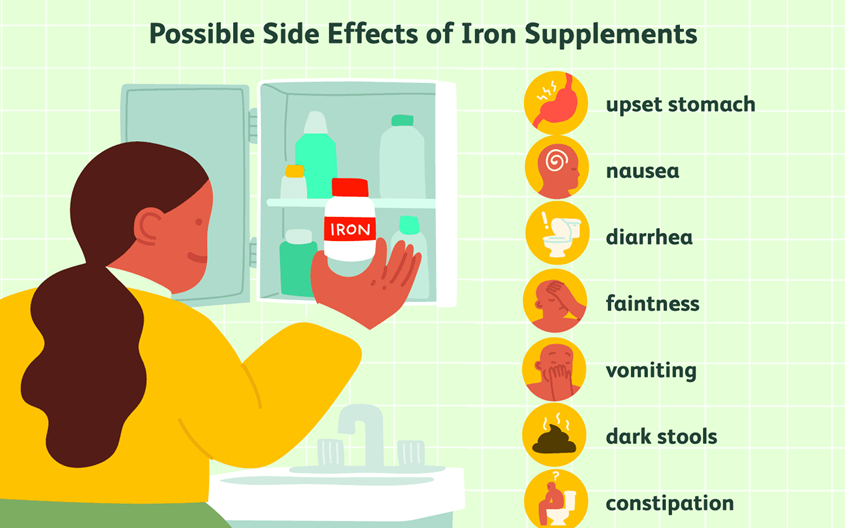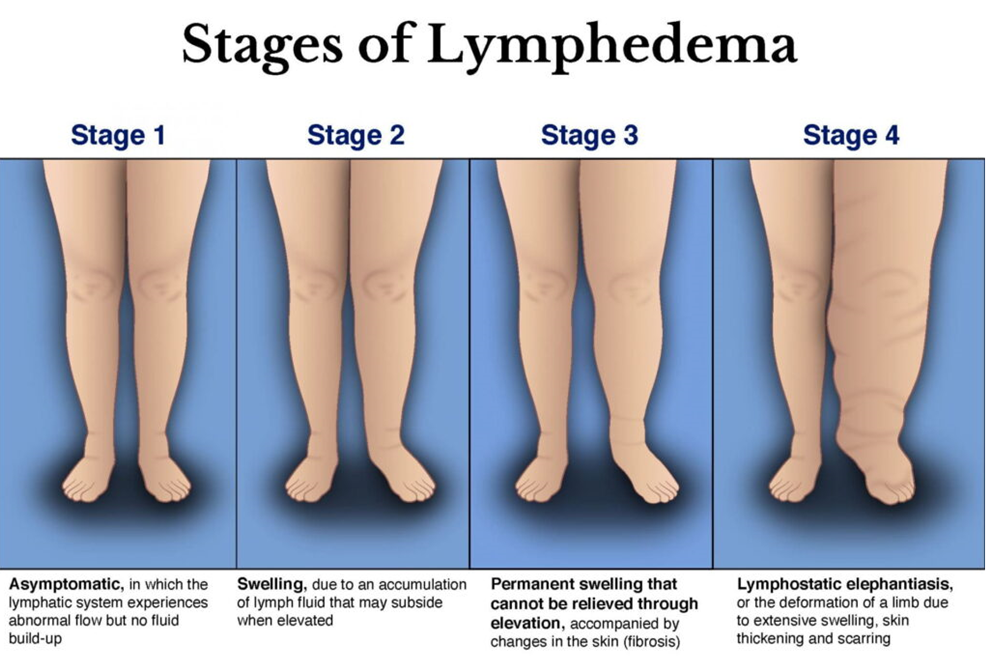A nurse is reinforcing discharge instructions with a client who is taking oral iron supplementation for anemia. Which of the following statements by the client demonstrates an understanding of the teaching?
I should take my supplement with an antacid to prevent an upset stomach.
I should drink my liquid iron supplement undiluted.
I should increase my fiber intake while taking this supplement.
I should notify my doctor if my stools turn black.
The Correct Answer is C
Choice A: This is incorrect because taking iron supplement with an antacid can reduce its absorption and effectiveness. The client should take iron supplement on an empty stomach or with a source of vitamin C to enhance its absorption.
Choice B: This is incorrect because drinking liquid iron supplement undiluted can stain the teeth and cause irritation to the mouth and throat. The client should dilute liquid iron supplement with water or juice and drink it through a straw.
Choice C: This is correct because increasing fiber intake while taking iron supplement can help prevent constipation, which is a common side effect of iron supplementation. The client should also drink plenty of fluids and exercise regularly to promote bowel movements.
Choice D: This is incorrect because notifying the doctor if stools turn black is not necessary as it is a normal and harmless effect of iron supplementation. The client should only notify the doctor if stools are tarry, bloody, or have a foul odor, which can indicate gastrointestinal bleeding.

Nursing Test Bank
Naxlex Comprehensive Predictor Exams
Related Questions
Correct Answer is B
Explanation
Choice A reason: Keeping both arms below the level of the client's heart can increase venous pressure and fluid accumulation in the affected arm, which can lead to lymphedema.
Choice B reason: After a mastectomy, it’s important to avoid procedures like blood draws, injections, or blood pressure measurements on the side where the surgery was performed to prevent lymphedema. Therefore, using the client’s left arm for blood samples is a preventive measure.
Choice C reason: Obtaining blood pressure readings using the client's right arm is an incorrect action that can increase lymphatic fluid accumulation and impair circulation in the affected arm.
Choice D reason: Limiting range-of-motion exercises with the affected arm is an incorrect action that can decrease lymphatic drainage and increase swelling in the affected arm. The nurse should encourage the client to perform gentle exercises, such as squeezing a soft ball or raising and lowering the arm, to promote lymphatic flow and prevent stiffness.

Correct Answer is D
Explanation
Choice A: This is incorrect because positioning the bedside table close to the client can help them reach their personal items and reduce the need to get out of bed.
Choice B: This is incorrect because keeping the client's bed in the low position can prevent injuries in case of a fall and make it easier for the client to get in and out of bed.
Choice C: This is incorrect because attaching the call light to the side rail of the client's bed can ensure that the client can access it easily and call for assistance when needed.
Choice D: This is correct because instructing the client to wear their own socks to the bathroom can increase the risk of slipping and falling. The client should wear non-skid footwear or slippers when walking.
Whether you are a student looking to ace your exams or a practicing nurse seeking to enhance your expertise , our nursing education contents will empower you with the confidence and competence to make a difference in the lives of patients and become a respected leader in the healthcare field.
Visit Naxlex, invest in your future and unlock endless possibilities with our unparalleled nursing education contents today
Report Wrong Answer on the Current Question
Do you disagree with the answer? If yes, what is your expected answer? Explain.
Kindly be descriptive with the issue you are facing.
